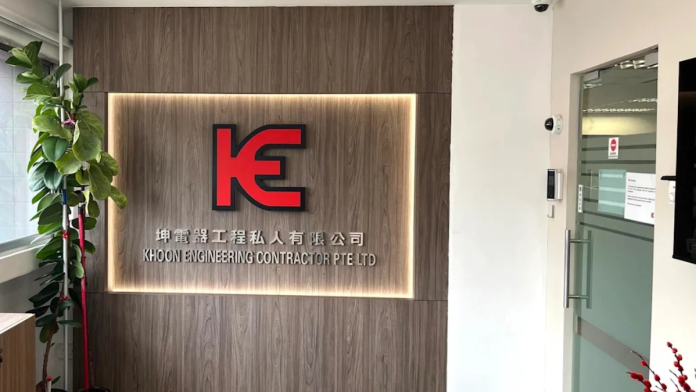Khoon Group, a well-known electrical and investment firm based in Singapore, has recently come under the spotlight after the United States government imposed sanctions on the company. The sanctions were issued by the US Treasury’s Office of Foreign Assets Control (OFAC), which accused the firm of being linked to a Southeast Asian businessman alleged to be running a large cybercrime network.
The development has caused ripples across Singapore’s corporate and public sectors because Khoon Group once played a role in local housing projects. The company claimed in the past that it powered one in every five Housing and Development Board (HDB) flats during its peak years. This old connection has now resurfaced, sparking renewed attention and concern about its past involvement in national projects.
However, Singapore’s Housing and Development Board has clarified that Khoon Group has not held any direct contract with them for more than twenty years. Officials confirmed that the company’s earlier involvement was limited to subcontracted or supply roles through other firms in the construction and electrical industries. Despite that, the resurfacing of its HDB past has become a sensitive issue, especially given how important and closely watched public housing is in Singapore.
US Sanctions Trigger Corporate Shock
The controversy began when the US Treasury listed Khoon Group among several entities connected to the alleged operations of an overseas business network accused of running scams and cybercrime schemes across Southeast Asia. According to reports, a controlling 55 percent stake in Khoon Group was acquired in 2023 by Southern Heritage Limited, a company associated with the same businessman now under global scrutiny.
America intervenes in Middle East flashpoint—Israel warned against sanctions as hostage row deepens
Once the sanctions were announced, Khoon Group’s partners and staff began distancing themselves. The firm’s auditors, corporate service providers, and even some directors resigned, citing ethical and compliance concerns. Their sudden departures signaled internal turmoil and a loss of confidence among key stakeholders.
Sanctions Deepen Business Strain
The US sanctions mean that American citizens and companies are barred from conducting business with Khoon Group and its related entities. In addition, any of the group’s assets that fall under US jurisdiction are now frozen. These restrictions have made it increasingly difficult for the company to operate internationally or maintain partnerships with banks and suppliers that observe US sanctions laws.
The move has also drawn attention to the broader network of companies connected to the sanctioned businessman. Seventeen other Singapore-registered companies linked to him were also added to the sanctions list, showing that this issue extends beyond a single firm. Regulators in Singapore are now said to be reviewing related entities to ensure compliance with local and international financial standards.
Public Reaction and Corporate Fallout
While Khoon Group’s direct connection to HDB ended decades ago, its past claims of contributing to Singapore’s public housing power systems have reappeared in public conversations. Many residents recall the company’s name from older housing project signboards or maintenance services, even if its role was minor or indirect.
Observers say the controversy poses a reputational challenge, especially because public housing in Singapore is tied to trust and accountability. Any perceived link between government projects and a company under sanctions could raise questions, even if no official connection remains.
The Housing and Development Board clarified that Khoon Group has had no contracts or active projects with HDB for more than two decades, adding that only firms meeting strict ethical and financial standards are eligible for public work.
Several senior staff and board members have reportedly stepped down in recent weeks, as sanctions limit the firm’s ability to operate and damage investor confidence. Analysts say the episode highlights the importance of ownership transparency and strict compliance in Singapore’s corporate environment.


